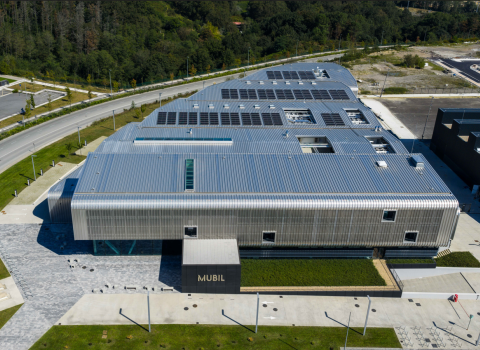The European Commission plans to launch its open science cloud by 2020, but calls on universities to train more data scientists
By 2020, the European Commission wants to have its ambitious plans for an ‘open science cloud’ up and running, linking thousands of researchers across Europe. But there’s a problem: Not enough data scientists trained to make it work well.
That skills gap could be filled by universities, Commission officials say. Needed are more master’s degrees in data science and visualisation to train the data technicians and analysts who will keep the European Open Science Cloud (EOSC) running, says Jean-Claude Burgelman, head of unit at the European Commission’s Directorate General for Research and Innovation.
Today, “there are too few of these integrated programmes,” Burgelman said.
The cloud initiative was launched by the Commission in April 2016, with the aim of letting researchers in any domain or country find data, software, scientific papers or other resources – in essence, turbo-charging the kind of open, collaborative work that already marks most sciences. It has the potential to change the operational culture of universities and research institutions. But before it is implemented all stakeholders involved will have to make sure that “the use of the data by researchers is as easy as possible,” said Jukka Mönkkönen, rector of the University of Eastern Finland.
To ensure that, researchers will have to work together with data experts, who will devise data and stewardship planning and data capture standards. Storing all the data produced by researchers would be extremely costly, so there needs to be a system in place for analysing it to weed out bad data.
But this goal will be difficult to reach, as the EU is facing “an alarming shortage of data expertise,” according to a report published by the European Commission in 2016. The report recommends that more effort and financing be put into training all the data experts needed to support the EOSC.
According to the same report, in the next decade, the EU will need more than 500,000 such data experts to effectively support 1.7 million scientists and over 70 million people working in innovation. With recent advances in artificial intelligence, demand for data scientists is growing rapidly across the economy – a recent report by PricewaterhouseCoopers forecasts that over the next three years, the global economy will create another 2.7 million new jobs in data science and analytics.
It will take some experimentation until the EU finds the best way to train and re-train the data experts it needs and to incentivise scientists to collaborate with them. “No one has a blueprint for [the EOSC]; we are learning by doing,” said Burgelman.
But, he added, this challenge can be overcome if the EU comes forward with enough money to fund the training of experts and if universities include open data in their curriculum. “It is a matter of offering the right rewards,” Burgelman said.
Coming up with a governance system that effectively manages all the finer points of the cloud across all member states will also be tricky, but that should come to fruition as soon as stakeholders commit to the creation of the cloud as a long-term priority, Burgelman suggested.


 A unique international forum for public research organisations and companies to connect their external engagement with strategic interests around their R&D system.
A unique international forum for public research organisations and companies to connect their external engagement with strategic interests around their R&D system.